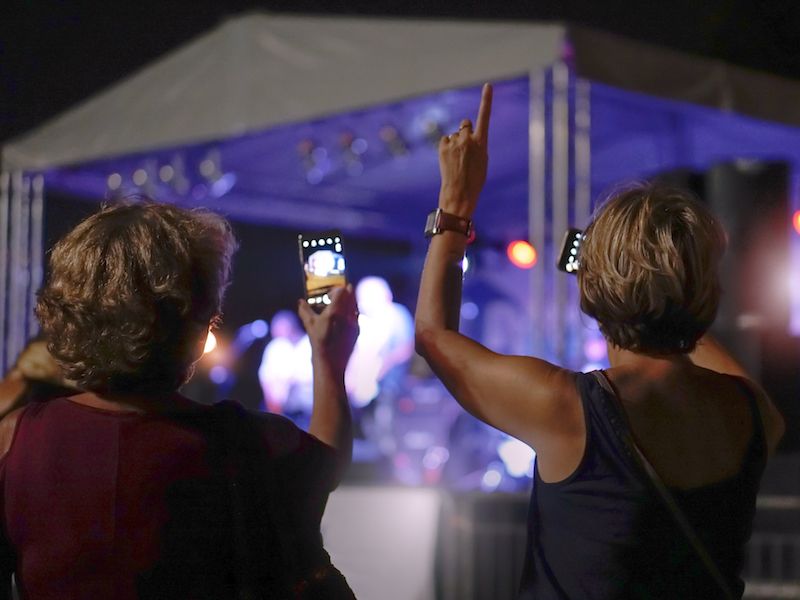
Summer has finally arrived, and you’re ready for all that fun we’ve been looking forward to: swimming in the pool, going to the beach, and other activities that may injure your hearing. You could find yourself in external situations or exposed to other loud sounds this summer that are hidden risks to your hearing. Any sounds over 80 decibels can cause harm to your hearing, while swimming in pools or other bodies of water can lead to permanent hearing loss. To keep your ears safe and sound this summer, you need to be conscious of your environment and take precautions. Here are six of the summer’s hidden hearing dangers.
At Concerts, Use Hearing Protection
The summer season is concert time, but even if you’re in a venue, you still should attend to your ears. Live music can reach over 90 decibels, even at outdoor shows, which is inside the danger zone of hearing loss. So whether you’re attending an inside or outside shows, it’s a practical idea to use earplugs. Earplugs dampen the sound while still enabling you to hear and get into the music. If you’re going to a show with young children, think about buying them a heavy duty set of earmuffs since their ears are much more sensitive than those of adults.
Your Ears Can be Damaged by Fireworks
Honestly, there are a lot of reasons to avoid fireworks in the summer. It’s not just the 4th of July shows which are professional that can injure your hearing, we mean the backyard fireworks which every summer season cause hundreds of incidents. Home fireworks reach decibel levels of nearly 155 which can hurt your ears on top of causing hand problems, loss of vision and home fires. This 4th of July, leave the fireworks to the pros and enjoy the display from a protected and sound distance.
Loss of Hearing Can be Caused by Lawnmowers
If you’re serious about your lawn, it’s likely that you’re out there at least once a week on your mower, trimming your bushes and using your edger. But that muffled feeling in your ears is a signal that your hearing has been harmed. That’s because the constant noise from your lawn tools impact your hearing over time. If you’ve ever seen lawn care pro’s, it is likely you have noticed them using ear protection, you should take a hint from them and wear earplugs or earmuffs next time you work on your lawn to ensure your ears stay healthy.
How to Safeguard Your Hearing When You’re at Poole And Beaches
Millions of people suffer from swimmer’s ear each summer, which happens when bacteria-packed water becomes trapped in your ear canal. The bacteria will then infect the ear, triggering swelling and painful earaches. It’s not just rivers and lakes that hold these bacteria, they can sometimes be found in hot tubs and pools if they aren’t cleaned and treated correctly. But if you have your ears treated by a hearing expert you will probably be ok, and no lasting loss of hearing will happen. To prevent swimmer’s ear, though, you should wear special swimming earplugs in the pool and have your pool water analyzed to make sure the chemical balance is safe.
Boats and Other Water Sports
If you enjoy the water, summer is beach and boating time for you. But, jet ski and boat engines are often loud,they can get up to more than 100 decibels. Irreversible hearing impairment can happen after about 15 minutes of exposure to that much noise. In this case also, putting on a pair of disposable foam earplugs is a smart strategy.
Car Races Can Harm Your Ears
It doesn’t make a difference what type of auto racing you love, motorcycle, midget, Formula 1, drag racing or stock cars. If you attend a lot of auto-races this year, they all present a peril. It’s estimated that volume levels can go beyond 120 decibels at some races, which is absolutely in the danger zone for hearing injury. Earplugs are your best bet at these races, although your children should probably wear the earmuffs we mentioned earlier. Otherwise, you might not get to enjoy the sound of those engines in the future.

